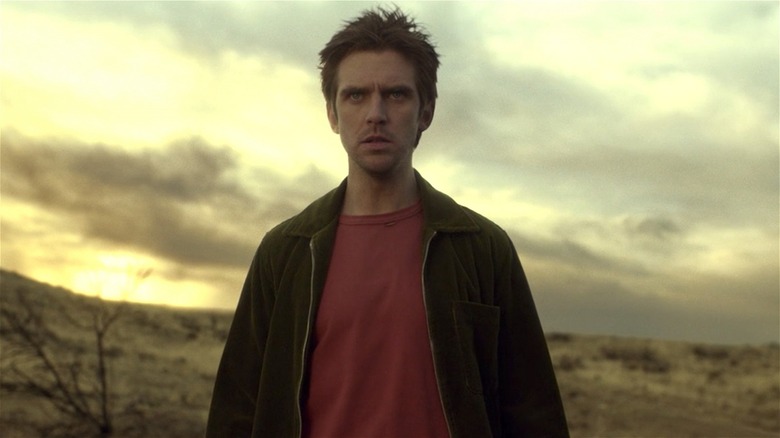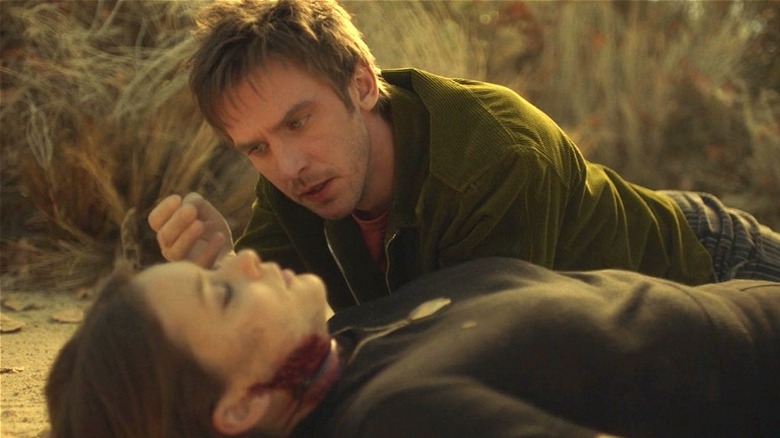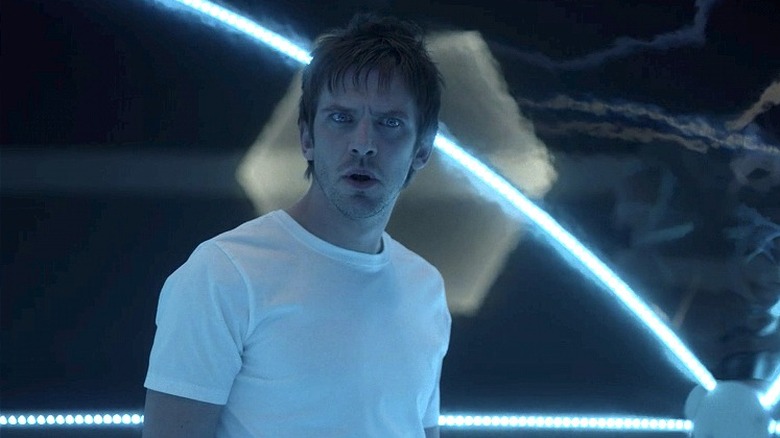Legion: The Irredeemable Character Choice That Ruined Marvel's Best Non-MCU Series
The following article includes content relating to sexual assault
In the wide world of Marvel adaptations, "Legion" is one of a kind. Far removed from the MCU or even the Netflix universe Marvel shows, the series delves into the true weirdness of the titular character, just as he deserves. The show revolving around schizophrenic mutant David Haller (Dan Stevens) delves into the strangeness of the comic character as the parasitic Shadow King tries to melt his brain. But the unique series' potential is squandered at the end of Season 2. After cultivating a love story with fellow mutant Syd (Rachel Keller), she reveals The Shadow King has to survive because he is integral in stopping David from destroying the world in the future. In an unthinkable twist, David wipes Syd's mind of memory before sleeping with her.
"You drugged me and had sex with me," Syd tells David at the end of the episode in a devastating line of dialogue. David manipulating Syd's mind robs her of her agency, making their sexual encounter an undeniable violation. Having someone commit this act against a person they claim to love — and claim to be deserving of love — is a bridge too far. Especially from a character we believed to be a protagonist.
If you or anyone you know has been a victim of sexual assault, help is available. Visit the Rape, Abuse & Incest National Network website or contact RAINN's National Helpline at 1-800-656-HOPE (4673).
David's character turn was intentional
On a network that featured flagship shows such as "The Shield," and "Sons of Anarchy," FX was always meant to be edgy. But there is a fine line between a gritty storyline and edgy material for edginess's sake, a pitfall that showrunner Noah Hawley fell into when planning to make David a villain.
"Magneto, who sometimes is [X-Men's] villain and sometimes is on their side, and the idea of what the right thing to do is can shift depending on the circumstances," Hawley told Entertainment Weekly. "So I wanted to evolve the show so that you realize over time that maybe David's not the hero."
To be fair, this is the trajectory of Legion in the comics. He is often on the wrong side of history. But in a television show that posits David as the main character who struggles but is inherently a good person, the execution was massively miscalculated. Hawley refers to Walter White (Bryan Cranston) in "Breaking Bad" as an influence. But at his core, Walt was always a bad person. He was petty, jealous, and just mean to his wife. There were no signs for David that this would be his fate. Turning David so suddenly violates the social contract show made with audiences. If this was David's trajectory all along, corresponding seeds should have been planted. And ultimately, do we really need a sexual assault plot device to prove someone's a villain? It feels exploitative at worst and lazy writing at best.
This finale didn't work for everyone
David's assault on Syd was a slap in the face to viewers who were tricked for two seasons into empathizing with the main character. A character who was complex, tormented, and even wrong, yes. But not someone who, for almost the entire series, was entirely devoted to his romantic partner. David writing Syd off was just lemon juice in the wound.
When Syd confronts David about how he hurt her, he refuses to accept that what he did was wrong. David professes to love Syd, but as soon as she makes him accountable for what he's done, he turns against her. When she advocates for him to get treatment, he accuses her of turning him into something easy. But that is exactly what he did when he took her memories. He took the complications out of their relationship to make the person he wanted. Various critics were shocked by this whiplash, like Vox's Emily St. James. But it was A.V. Club's Alex McLevy who probably unpacked it best.
"Transforming David from a fundamentally decent person with a troubled mind into someone capable of committing sexual assault in the course of a single episode is the needle scratch on the record player," McLevy wrote. He went on to put his feelings in no uncertain terms, simply stating, "I don't know if I can accept David's actions, not when they haven't been properly set up narratively and justified psychologically, both on our end and his."


